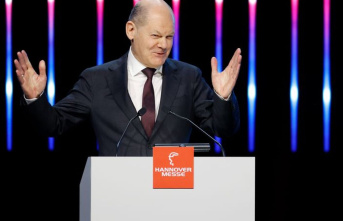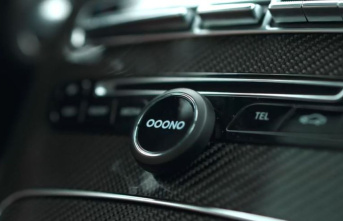In the discussion about the heat transition, the plumbing trade and heating industry have spoken out against strict bans on new gas and oil heating systems. Immediately before the opening of the world's leading trade fair ISH in Frankfurt (March 13-17), it became clear that the industry would be critical of an overly bold approach by the traffic light coalition. The experts consider the proposals that have been on the table so far and are controversial in the coalition to be half-baked.
When it comes to the heating transition, politics must be based on the realities of the market and start with the end customer, said the general manager of the Central Association for Sanitary, Heating and Air Conditioning, Helmut Bramann. The craft representative criticized Economics Minister Robert Habeck (Greens): "Climate change is unlikely to succeed with a snap of the fingers at the cabinet table." The heating industry was also dissatisfied with the draft. He misses the equal treatment of other renewable energy sources such as wood or bio-gas, said Managing Director Markus Staudt from the Federal Association of the German Heating Industry (BDH).
Heater replacement could take decades
The background is the discussion about a draft law that provides for stricter rules for the installation of new heating systems from 2024. According to an agreement reached by the coalition in spring 2022, from 2024 every newly installed heating system should be operated with 65 percent renewable energy. This could amount to a de facto ban on new combustion heaters. However, the details of the transition and operating periods that are important for many owners and tenants have not yet been determined.
The heating transition is a gigantic task facing homeowners, the state, industry and trade. "We certainly cannot replace 21 million heaters in one fell swoop," said industry representative Staudt. Last year, with great effort, almost one million new heat generators, including systems in new buildings, were installed. Compared to the old heating systems, this saves around 2 million tons of CO2 per year, as a study by the Dresden Institute for Technical Building Services shows.
The catch: With almost 600,000 units, gas heaters still accounted for the lion's share despite a decline of 8 percent. Even the frowned upon oil heating experienced a kind of last minute run with an increase of 25 percent to 56,500 devices. Heat pumps achieved the largest increase with an increase of 53 percent to 236,000 devices, and the industry promises 500,000 units for next year. However, that is by far not enough for a complete annual requirement. Other alternative and sustainable heat generators such as biomass stoves achieved a market share of 9 percent with 89,000 units and are only likely to play a subordinate role in the climate change in buildings.
A heat pump is not always required when renovating
In contrast to new builds, heat pumps in existing buildings are not a sure-fire success either. Hardly insulated outer shells and small radiators are bad conditions for the electricity-driven heat pumps, which create significantly lower flow temperatures than conventional burners. In tight settlements, it is also important to find conflict-free locations for the outdoor devices, which according to Bosch can cause noises of between 30 and 50 decibels. Owners of older properties tremble in the face of obvious investments, for example if the roof suddenly has to be re-insulated instead of a simple gas heating system and an expensive heat pump complete with electricity storage and photovoltaics are also on the list.
The manufacturers are fully committed to the heat pump, as will become clear at the trade fair. Viessmann from northern Hesse, for example, is investing around one billion euros, is currently building a new plant for outdoor units in Legnica, Poland, and is converting old gas production lines in Allendorf, Germany, to the new technology. "We want to increase our production capacity for heat pumps sevenfold by 2025," says Thomas Heim, head of Viessmann's Climate Solutions division.
Despite all the investments, the delivery times for heat pumps are still long for most manufacturers, and supplies are particularly tight when it comes to water storage tanks. Nevertheless, installation companies like Uwe Loth's in Vellmar near Kassel have had their hands full for many months. "I have to be careful not to overload my people," says the Hessian state guild master.
Is there a shortage of skilled workers?
At the moment, the companies have a particularly large number of orders for conventional gas and oil heating systems, because many owners are quickly looking for even more cost-effective solutions. But the demand for heat pumps is also constantly increasing, so that Master Loth fears: "Once the industry can really deliver, we could run out." Loth believes that the goal of having 6 million heat pumps operational in Germany by 2030 is unrealistic. The Central Association of Crafts estimated last year that 60,000 fitters and 26,000 commercial employees were missing.
There is no uniform solution for the German building stock, warned Timm Kehler from the lobby association "Zukunft Gas", which sees modern gas heating as part of the solution. At least half of the buildings in this country are not ready for heat pumps to be installed. Habeck's draft law is too harsh because "hundreds of thousands of property owners are being driven into significant additional investments or are faced with unsolvable tasks due to a lack of craftsmen or technical solutions." The high demands meant that modernization became a luxury and more than 500,000 gas heaters were repaired each year and not modernized. This is how you stay locked in the past instead of creating an effective departure for climate-neutral living.






